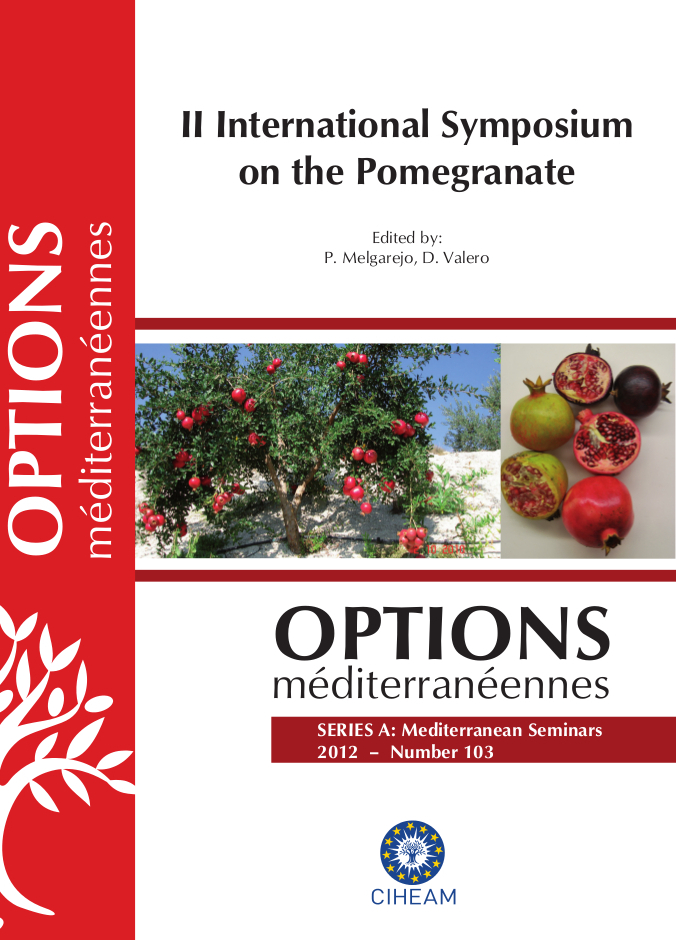| Article précédent | p. 107-111 | Article suivant |
Efficacy and residues of selected insecticides for control of cotton aphid (Aphis gossypii) and mealybug (Planococcus citri) in pomegranates
Mealybug (Planococcus citri Risso) and aphids (Aphis gossypii Glover and Aphis punicae Passerini) are the most important pests of pomegranate production in Alicante (Spain). Due to the minor crop status of pomegranates, registered pest control chemicals for this crop are scarce. Experimental field efficacy of new conventional insecticides and alternative sprays against these sucking pests was assessed.Experiments to deal with these pests were carried out in randomized block design with three replications during 2009-2010, in two experimental pomegranate orchards in the Southeastern region of Spain. Other management practices and natural enemies of these pests were identified and quantified during the crop period. Results of the experiments suggest that the population of cotton aphid was resistant to Pirimicarb. New generation insecticides (Imidacloprid, Flonicamid, Acetamiprid) were more effective in controlling aphids. Moderately effective control can be achieved with soap, citrus oil and other tolerance exempt products, or some combination of these, but more than two applications may be necessary. Pesticide residue levels in ripening fruit after treatments were analysed.
- [ Afficher ]
- [ Télécharger ]
- [ Exporter la citation ]
Vous pouvez télécharger la citation au format :
- [ Imprimer ]
-
Mots-clés
LUTTE ANTIRAVAGEUR, RESIDU, ENNEMI NATURELCiter cet article
Bartual J., Lozoya A., García J., Valdés G. Efficacy and residues of selected insecticides for control of cotton aphid (Aphis gossypii) and mealybug (Planococcus citri) in pomegranates. In : Melgarejo P. (ed.), Valero D. (ed.). II International Symposium on the Pomegranate. Zaragoza : CIHEAM / Universidad Miguel Hernández, 2012. p. 107-111. (Options Méditerranéennes : Série A. Séminaires Méditerranéens; n. 103). 2. International Symposium on the Pomegranate, 2011/10/19-21, Madrid (Spain). http://om.ciheam.org/om/pdf/a103/00006916.pdf



